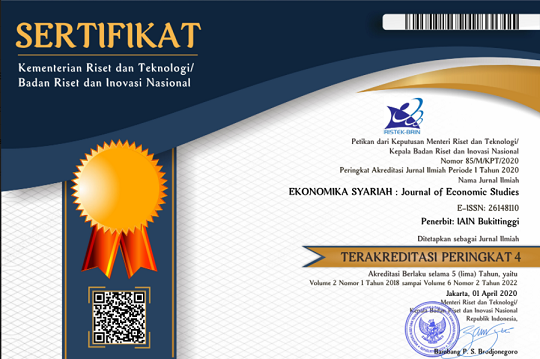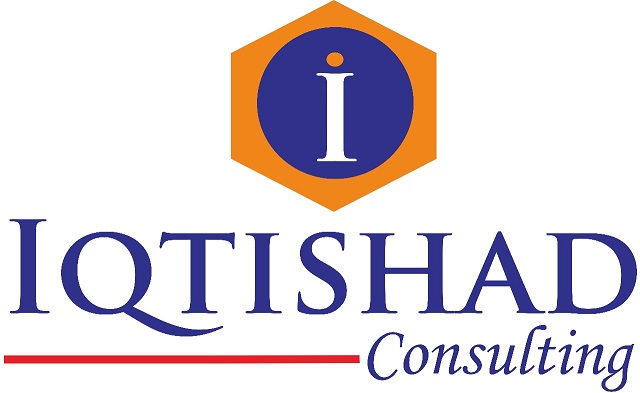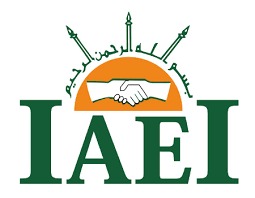The Potential of Banto Royo Tourism Based on Local Wisdom and Islamic Philanthropy towards SDGs Tourism
DOI:
https://doi.org/10.30983/es.v6i2.5192Keywords:
tourism, local wisdom, sustainable development goals.Abstract
Since 2018, the youth and the people of Banto Royo Village, Koto Tangah, have developed several tourism destinations in their area. This village has many potential tourism objects with charm and uniqueness, so many visitors from inside and outside the area enjoy it. Increased visits increase regional income, which returns for social purposes. This research is descriptive qualitative, and data collection is done by observation, interviews, and documentation and is supported by relevant written materials such as books, research, and journals. This study aims to describe the economic advantages of local wisdom-based tourism and its prospects in Banto Royo Village. The results showed that Banto Royo, a tourist destination, has many advantages and uniqueness. In addition to its beautiful scenery, it offers unique and halal culinary delights, a family arena, community friendliness, courtesy, and adequate facilities. The community has a role in participating in carrying out tourism activities by maintaining their local traditions and wisdom. The government and the community are committed to increasing the potential and attractiveness of tourism and improving the community's economy through the Sustainable Development Goals (SDGs).
Â
References
Book
Andayani, Hery Sucipto dan Fitria, Wisata Syariah, Karakter, Potensi, Prospek & Tantangannya (Jakarta: Grafindo Books Media, 2014)
Hendi Suhendi, Fiqh Muamalah, 10th edn (Jakarta: Raja Grafindo Persada, 2017)
I Gede Pitana, I Ketut SD, Pengantar Ilmu Pariwisata (Yogyakarta: Andi, 2009)
Muhammad Djakfar, Pariwisata Halal: Perspektif Multidimensi (Malang: UIN Maliki Press, 2017)
Navis, A.A, Alam Takambang Jadi Guru: Adat Dan Kebudayaan Minangkabau (Jakarta: Grafiti Pers, 2003)
Pendit, Nyoman S., Ilmu Pariwisata Sebuah Pengantar Perdana, (Jakarta: Pradnya Paramita, 2002)
Roza Linda, Fiqh Ekonomi Syariah, 1st edn (Jakarta: Raja Grafindo Persada, 2016)
Sofyan, Riyanto, , Prospek Bisnis Pariwisata Syariah (Jakarta: Republika, 2012)
Interview
Fitri, “Wawancara Pribadi†(Banto Royo, 2021)
Hartati, Yulmita, Wawancara Pribadi (Koto Tangah, Agam, 2022)
Mawardi, “Wawancara Pribadi†(Banto Royo)
“Membawa Kedermawanan Ke Arah Keberlanjutan,†Filantropis Milenial, 2018
Journal
Adinugraha, Hendri Hermawan, Mila Sartika, and Ana Kadarningsih, “Desa Wisata Halal: Konsep Dan Implementasinya Di Indonesia,†Jurnal Human Falah, 5.1 (2018), 28–48
Adisasmita, R, “Wisata, Ekologi Pariwisata Tata Laksana Pengelolaan. Objek Dan Daya Tarik,†Pembangunan Kelautandan Kewilayahan, 2006
Alkaf, Fatima Tuzzahara, and Sri Widyastuti, “Competitiveness Analysis of Halal Tourism: Evidence From Nusa Tenggara Barat,†The 8th ITSA Biennial Conference Special Edition, 2016, 1–10
Alwafi Ridho Subarkah, “Wisata Halal Untuk Tujuan Pembangunan Berkelanjutan,†2019
Bon Maedeh, “Halal Food And Tourism Prospect and Challenges,†Jurnal of Tourism in the Muslim World Bridging Tourism Theory and Practice, 2.4 (2019), 47
Dewi, Puspa, and Ifelda Nengsih, “Strategi Pemberdayaan Kembali Ekonomi Masyarakat Kubu Gadang Melalui Pariwisata Era New Normal,†Batusangkar International Conference V, 2020, 227–38
Dusni, S, “Pemberdayaan Masyarakat Lahan Tidur Menjadi Objek Wisata,†Tathir: : Jurnal Pengembangan Masyarakat Islam, 2021
F Febrian, W Prarikeslan, “Dampak Objek Wisata Banto Royo,†2021
Ferdiansyah, Hendry, “Pengembangan Pariwisata Halal Di Indonesia Melalui Konsep Smart Tourism,†Journal of Sustainable Tourism Research, 2.1 (2020), 31
Fitriana, Widya, Ernan Rustiadi, Akhmad Fauzi, and Lukytawati Anggraeni, “Penguatan Inklusi Keuangan Pada Industri Kreatif Berskala Mikro Kecil Di Sumatra Barat,†Jurnal Ekonomi Dan Pembangunan Indonesia, 2019, 140–53 <https://doi.org/10.21002/jepi.v0i0.1112>
Handrian, Eko, and Hendry Andry, “Sustainable Development Goals: Tinjauan Percepatan Pencapaian Di Provinsi Riau,†PUBLIKA : Jurnal Ilmu Administrasi Publik, 6.1 (2020), 77–87 <https://doi.org/10.25299/jiap.2020.vol6(1).4995>
Jaelani, Aan, “Munich Personal RePEc Archive Halal Tourism Industry in Indonesia: Potential and Prospects,†MPRA Paper, 76237, 2017, 1–20
Katmas, Ekarina, Nur Faizah, and Ayu Wulandari, “Pengaruh Penerapan Etika Bisnis Islam Terhadap Kinerja Usaha Mikro Kecil Dan Menengah,†Jurnal Asy-Syukriyyah, 23.1 (2022), 22–35 <https://doi.org/10.36769/asy.v23i1.212>
Komite Nasional Keuangan Syariah, “Masterplan Ekonomi Syariah Indonesia 2019-2024,†Kementerian Perencanaan Pembangunan Nasional/ Badan Perencanaan Pembangunan Nasional, 2018, 1–443
Lisma, Nuryenti, Sepris Yonaldi, and Liza Zulbahri, “Faktor-Faktor Yang Mempengaruhi Kunjungan Wisatawan Ke Objek Wisata Syariah Di Sumatera Barat,†Jurnal Manajemen Dan Kewirausahaan, 8 (2018), 1–15
Mohammad Jeffry maulidi, “Wisata Halal Dan Identitas Islami: Studi Kasus Lombok, Nusa Tenggara Barat,†Jurnal Pemikiran Sosiologi, 5.1 (2019), 85–104
Novellindo, Richy, “Studi Pengelolaan Objek Wisata Banto Royo Sebagai Tujuan Wisata Di Jorong Kaluang Tapi Nagari Koto Tangah Kecamatan Tilatang Kamang Kabupaten Agam,†STKIP PGRI Sumatera Barat., 2019
ONU, “Sustainable Development Goals: Guidelines for the Use of the SDG,†United Nations Department of Global Communications, May, 2020, 1–68
Paul, B. D, “Sustainable Development – A Theoritical Approach. Annals of the University of Oradea,†Economic Science, 17.2 (2008), 58
Prananta, Rebecha, and Pramesi Lokaprasidha, “Prospek Pengembangan Wisata Halal Di Provinsi Sumatera Barat,†Prosiding Seminar Nasional Pariwisata 2018 Universitas Jember, 2018, 261–72
Rusdi, Afgan, “Wisata Banto Royo Area Rawa Yang Cantik,†2021
Rusyaida, Rusyaida, and Noor Fadlli Marh, “Peranan Bundo Kanduang Mengembangkan Wisata Halal Ekonomi Kreatif Berbasis Kearifan Lokal Di Tirtasari Tilatang Kamang,†EKONOMIKA SYARIAH : Journal of Economic Studies, 4.2 (2020), 179 <https://doi.org/10.30983/es.v4i2.3704>
Satriana, Eka Dewi, and Hayuun Durrotul Faridah, “Halal Tourism: Development, Chance and Challenge,†Journal of Halal Product and Research, 1.2 (2018), 32 <https://doi.org/10.20473/jhpr.vol.1-issue.2.32-43>
Sayekti, Nidya Waras, “Strategi Pengembangan Pariwisata Halal Di Indonesia,†Kajian, 24.3 (2019), 159–71
Subarkah, Alwafi Ridho, “Potensi Dan Prospek Wisata Halal Dalam Meningkatkan Ekonomi Daerah (Studi Kasus: Nusa Tenggara Barat),†Jurnal Sosial Politik, 4.2 (2018), 49 <https://doi.org/10.22219/sospol.v4i2.5979>
Subarkah, Ridho, and Junita Budi Rachman, “Wisata Halal Untuk Tujuan Pembangunan Berkelanjutan Halal Tourism for Sustainable Development Goals,†Konferensi Nasional Ilmu …, March, 2018, 1–6
Suri, Lusi Andam, “Pembangunan Obyek Wisata Berbasis Komunitas Lokal Pada Jorong Kaluang Tapi, Nagari Koto Tangah, Kecamatan Tilatang Kamang, Kabupaten Agam,†Jurnal Sosiologi Andalas, 5.2 (2019), 74–86 <https://doi.org/10.25077/jsa.5.2.74-86.2019>
Zulkifli, Nila Safrida, Leli Rahmana Sari, “The Light Of Aceh: Upaya Penguatan Destination Branding Berbasis Halal Tourism Sebagai Perwujudan Sustainable Development Goals 2030,†Prosiding Webinar Nasional Pekan Ilmiah Pelajar (PILAR), 12.1 (2022), 187–93
Website
Pusat, Pemerintah, Undang-Undang (UU) Tentang Kepariwisataan, JDIH BPK RI, 2009, X HTTPS://PERATURAN.BPK.GO.ID/HOME/DETAILS/38598/UU-NO-10-TAHUN-2009
Pariwisata, Badan Pengembangan, Pedoman Pariwisata Halal Jawa Barat, Bappeda.Jabarprov.Go.Id, 2018
Downloads
Additional Files
Published
How to Cite
Issue
Section
Citation Check
License
Copyright (c) 2022 Rusyaida

This work is licensed under a Creative Commons Attribution-ShareAlike 4.0 International License.
Authors who publish with this journal agree to the following terms:
- Authors retain copyright and grant the journal right of first publication with the work simultaneously licensed under a Creative Commons Attribution-ShareAlike 4.0 International License that allows others to share the work with an acknowledgment of the work's authorship and initial publication in this journal.
- Authors are able to enter into separate, additional contractual arrangements for the non-exclusive distribution of the journal's published version of the work (e.g., post it to an institutional repository or publish it in a book), with an acknowledgment of its initial publication in this journal.
- Authors are permitted and encouraged to post their work online (e.g., in institutional repositories or on their website) prior to and during the submission process, as it can lead to productive exchanges, as well as earlier and greater citation of published work (See The Effect of Open Access).




